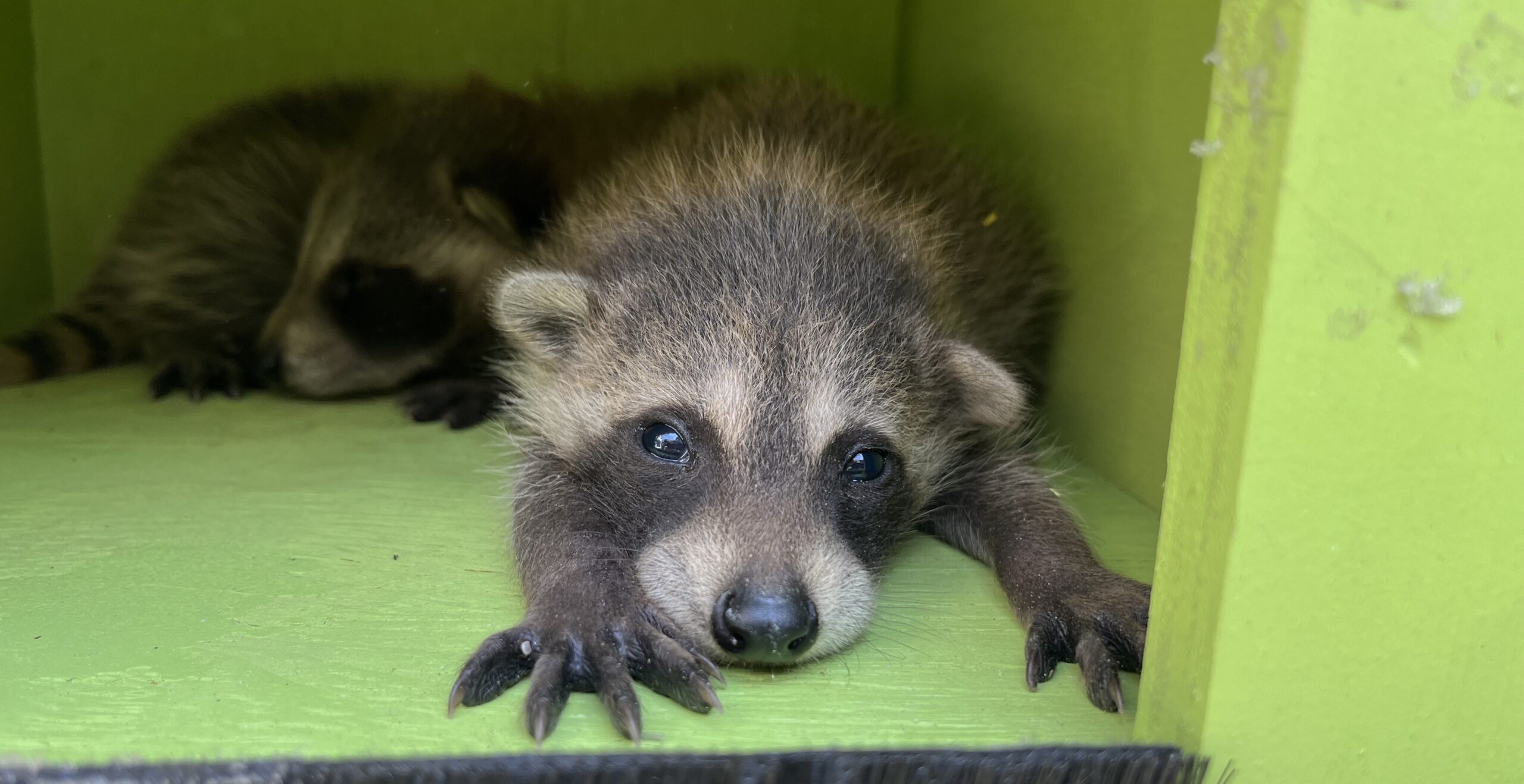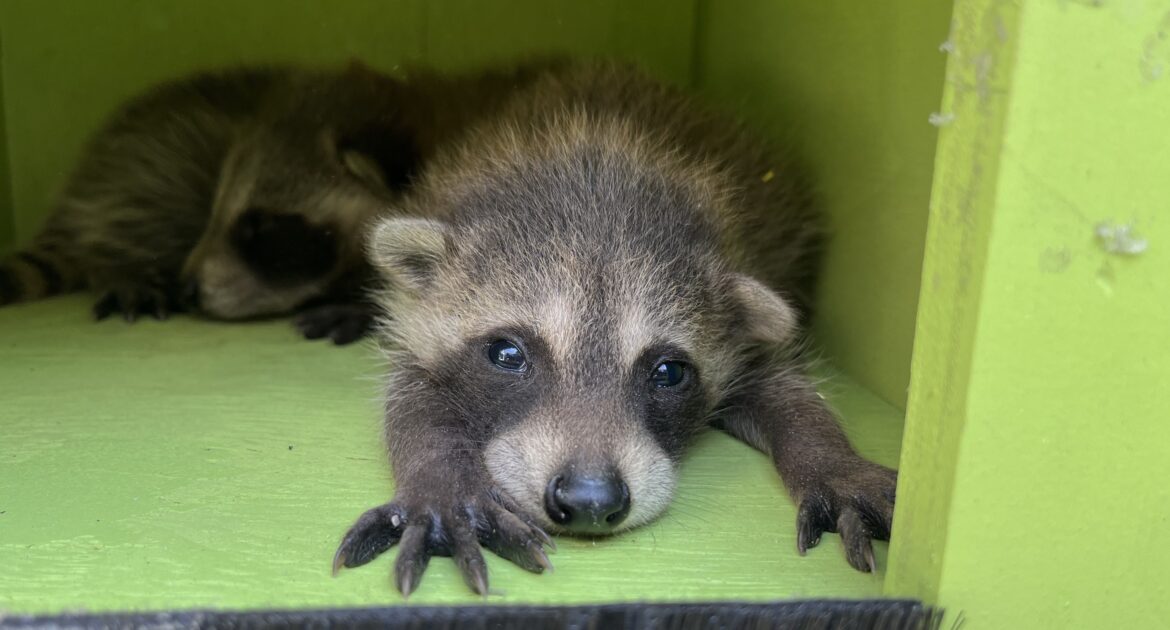When winter rolls into Baltimore, you might wonder how local wildlife deals with the cold. One animal people often question during the colder months is the raccoon.
Specifically, many want to know — do raccoons hibernate? The short answer is no, raccoons do not hibernate. Instead, these resourceful animals adapt their behavior to survive winter.
At Skedaddle Humane Wildlife Control in Baltimore, we know how important it is to understand wildlife behavior, especially raccoon winter behavior. Knowing how raccoons cope during colder months helps you take the right steps if they decide to make themselves at home in your shed or attic.
Our team specializes in Baltimore raccoon control, using humane methods like one-way doors to evict animals and prevent their return.
Now, let’s explore how raccoons deal with winter and what makes their behavior unique.
Raccoon Winter Behavior: No Hibernation, Just Adaptation
Raccoons are not true hibernators. Unlike bears or groundhogs, they don’t go into a deep sleep during winter. Instead, they enter a state called torpor. This is a lighter form of inactivity that allows raccoons to conserve energy without fully shutting down like hibernating animals. During this time, their metabolism slows, and they become less active, venturing out only when necessary.
Why don’t raccoons hibernate?
Raccoons have survival strategies that make hibernation unnecessary:
- Varied Diet: These animals are opportunistic eaters. They can find food almost anywhere, whether it’s scraps in your trash, fallen fruit, or small animals, which helps them stay well-fed even in winter.
- Thick Fur: Their dense, fluffy coats keep them warm, even when temperatures drop. This natural insulation acts like a built-in winter jacket, helping them survive cold nights.
- Flexible Sheltering Habits: Raccoons often find secure, insulated places to ride out the cold, including hollow trees, abandoned burrows, and unfortunately, human homes like attics or garages. They are experts at finding cozy spots that protect them from harsh weather and predators.
Because they don’t burn as much energy in winter, raccoons can survive with less food and activity compared to other times of the year. However, this doesn’t mean they disappear completely.
Where Do Raccoons Go in Winter?
If you’ve noticed fewer signs of raccoons around your property during winter, it’s because they are likely laying low in their chosen dens. Raccoons like to find places that offer warmth and safety from predators. Here are some common places they use for shelter during Baltimore’s colder months:
- Trees and Logs: Hollow trees and downed logs are natural hideouts.
- Human Structures: Attics, chimneys, and sheds can turn into cozy dens.
- Rock Crevices or Burrows: These offer natural insulation to escape the chill.
Because raccoons stay in their dens for long periods, they won’t always be out raiding trash cans or wandering your yard. But don’t be fooled — they’re still around, especially during milder winter days when they might come out to search for food.
Signs That Raccoons May Be in Your Home
Raccoons are clever and resourceful, which sometimes leads them to enter homes. If they’ve moved into your space for the winter, there are a few signs you might notice:
- Noises at Night: Scratching, crawling, or soft thumping sounds in your attic or walls could indicate raccoon activity. These sounds are often most noticeable at night when raccoons are awake and moving around.
- Droppings: Raccoons leave distinctive droppings, often near entry points. Their waste can carry diseases, so it’s important to clean it up carefully if you spot it.
- Damaged Entry Points: Look for torn shingles, damaged soffits, or holes in vents as potential access routes. Raccoons are strong and clever, so they can create openings to get into your home if they find weak spots.
- Tracks: Raccoon tracks feature noticeable claw marks and a long heel pad. You might see these tracks in mud, snow, or even dust near areas where they’ve been exploring.
If you suspect a raccoon has taken up residence, it’s important to act quickly. Leaving them alone could lead to property damage or health risks from waste buildup.
How We Handle Raccoon Control at Skedaddle
At Skedaddle Humane Wildlife Control, we know Baltimore raccoon control requires careful, humane solutions. Using one-way doors, we provide a safe way for raccoons to exit your home without the ability to re-enter. Here’s how our process works:
- Inspection and Assessment: We thoroughly inspect your home for signs of raccoon activity, identifying entry points and areas where they might be nesting. This helps us understand how raccoons are getting in and what needs to be done to keep them out.
- Installing One-Way Doors: Our unique one-way doors allow animals to leave but prevent them from returning. This humane method ensures raccoons can safely exit your home without causing them harm or stress.
- Sealing Entry Points: After evicting the raccoons, we carefully seal access points to prevent future invasions. By closing off these gaps, we make sure your home stays protected from wildlife in the future.
- Sanitizing Affected Areas: Raccoons can leave behind waste and debris. We clean and sanitize these areas to remove odors, germs, and any potential health risks for your family.
By understanding raccoon winter behavior, our team can develop solutions tailored to your specific situation. Our main goal? To protect your home while treating these animals humanely.
Why Baltimore Homes Are at Risk
Baltimore winters can be unpredictable, with temperatures fluctuating between freezing and mild.
This inconsistent weather often leads raccoons to seek stable shelter, making residential properties especially tempting. If your home provides easy access and warmth, raccoons might see it as the perfect winter hideout.
Additionally, urban areas like Baltimore often have abundant food sources, such as unsecured garbage bins or pet food left outside. This convenience makes raccoons more likely to stick around neighborhoods, even during the colder months.
Tips to Prevent Raccoons from Moving Inside
While Skedaddle is always here to handle immediate raccoon control, you can take steps to proactively protect your home. Here are some practical tips to deter raccoons:
- Secure Trash Cans: Use locking lids or store bins inside your garage to limit access. This keeps raccoons from rummaging through your trash and making a mess.
- Close Off Potential Dens: Seal gaps in attics, sheds, and crawl spaces. Raccoons love cozy spaces, so blocking these areas keeps them from moving in.
- Trim Trees and Shrubs: This removes climbing opportunities and reduces potential entry points. Overgrown branches can act like ladders, helping raccoons reach your roof or attic.
- Avoid Leaving Food Outdoors: Bring pet food dishes inside and clean your barbecue grills after use. Even small food scraps can attract raccoons and encourage them to stick around.
Taking these preventative measures can go a long way in keeping your home less appealing to curious raccoons.
Time to Reclaim Your Space
When raccoons adapt to survive winter, that doesn’t mean you have to share your roof with them. If you’ve been wondering, “Do raccoons hibernate?” now you know they don’t, but their winter habits can still impact your home. Trust the experts at Skedaddle Humane Wildlife Control in Baltimore to safely and effectively handle the situation.
Looking for professional help? Request an estimate today, and we’ll ensure your winter remains raccoon-free while providing humane, reliable solutions.




